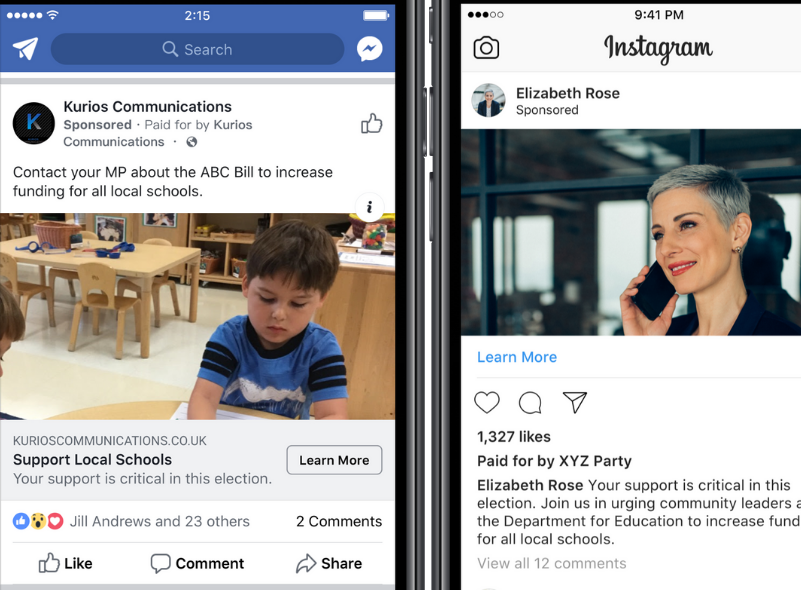
Facebook is forcing political ad buyers in the UK to verify their identity and location from today, following concerns about the role in recent elections of so-called “dark ads” on the social network.
The tech giant has also rolled out the changes across its UK Instagram platform, following updates in the US and Brazil earlier this year, saying greater transparency was “good for democracy”.
Facebook will also put a “paid for by” label on political adverts, so users can see who is pushing a particular candidate or campaign.
In a blog post, the company said: “While we are pleased with the progress we have seen in the countries where we have rolled out the tools, we understand that they will not prevent abuse entirely.
“We’re up against smart and well-funded adversaries who change their tactics as we spot abuse. But we believe that this higher level of transparency is good for democracy and is good for the electoral process.”
Political adverts for parties, candidates, election campaigns, legislation and past referendums will be stored in a Facebook ad archive, allowing information on ad buyers to be viewed for up to seven years.
Anyone can access the Facebook ad archive, which began collecting ads from yesterday, 15 October, whether they have a Facebook account or not.
Facebook users can also report any unmarked political ads. The social media firm claims it will then take the offending advert down and block the user from posting more political ads until they verify their identity.
The platform’s changes to political ad rules comes in the wake of the Cambridge Analytica scandal – which saw the UK firm harvest the data of 50m Facebook users without the company’s permission.
That data was then allegedly used to direct political advertising at US voters during the 2016 presidential election.
Cambridge Analytica whistleblower Chris Wylie has also claimed that the data breach may have influenced the Brexit vote.
In July, the UK’s “fake news” inquiry pushed for reforms to tackle disinformation on social media platforms that included creating a new form of tech company that was somewhere between a platform and a publisher.
It also pushed for a ban on all “micro-targeted” political adverts on social media networks.
Picture: Reuters/Dado Ruvic/Illustration/File Photo
Email pged@pressgazette.co.uk to point out mistakes, provide story tips or send in a letter for publication on our "Letters Page" blog
